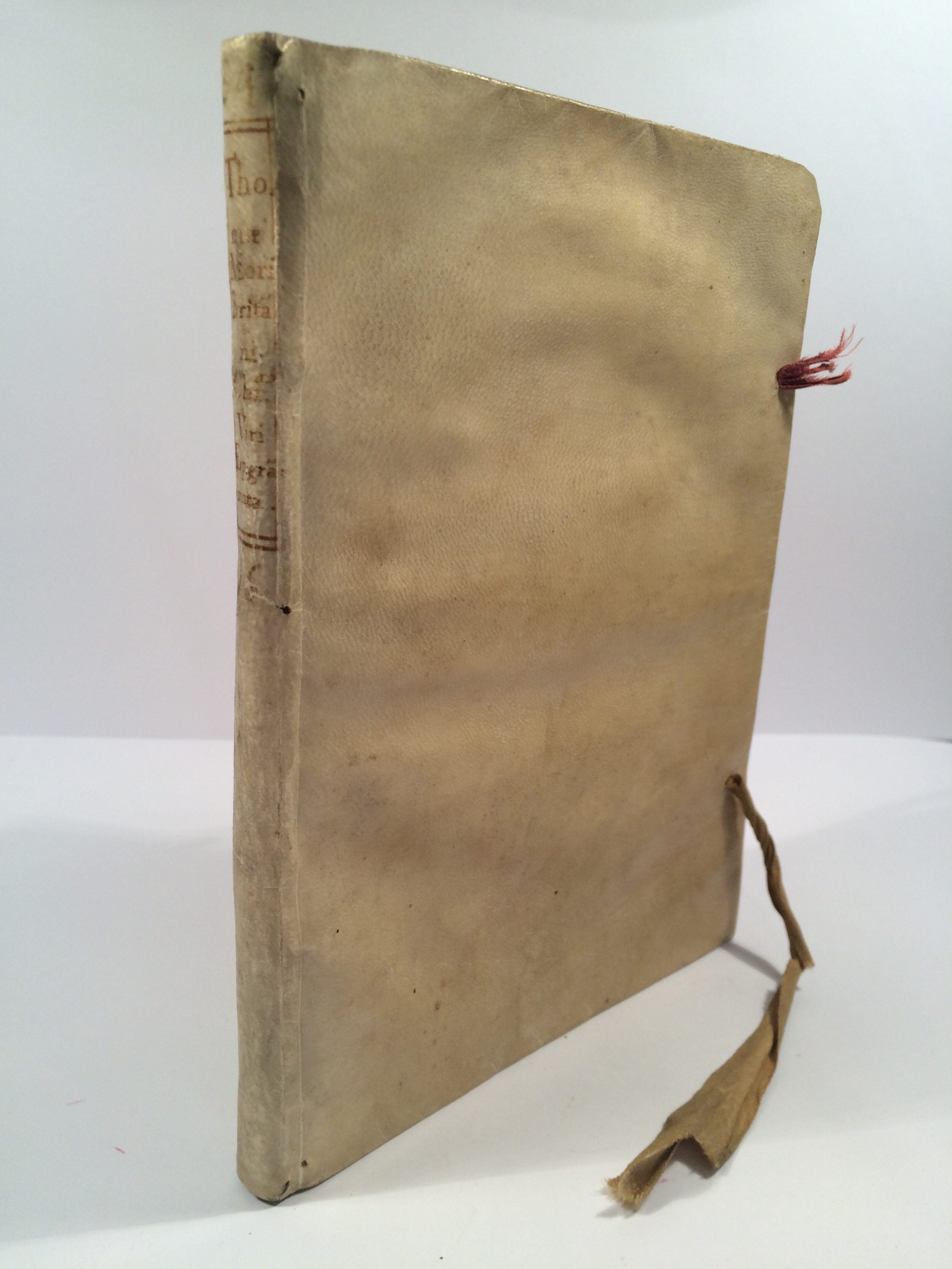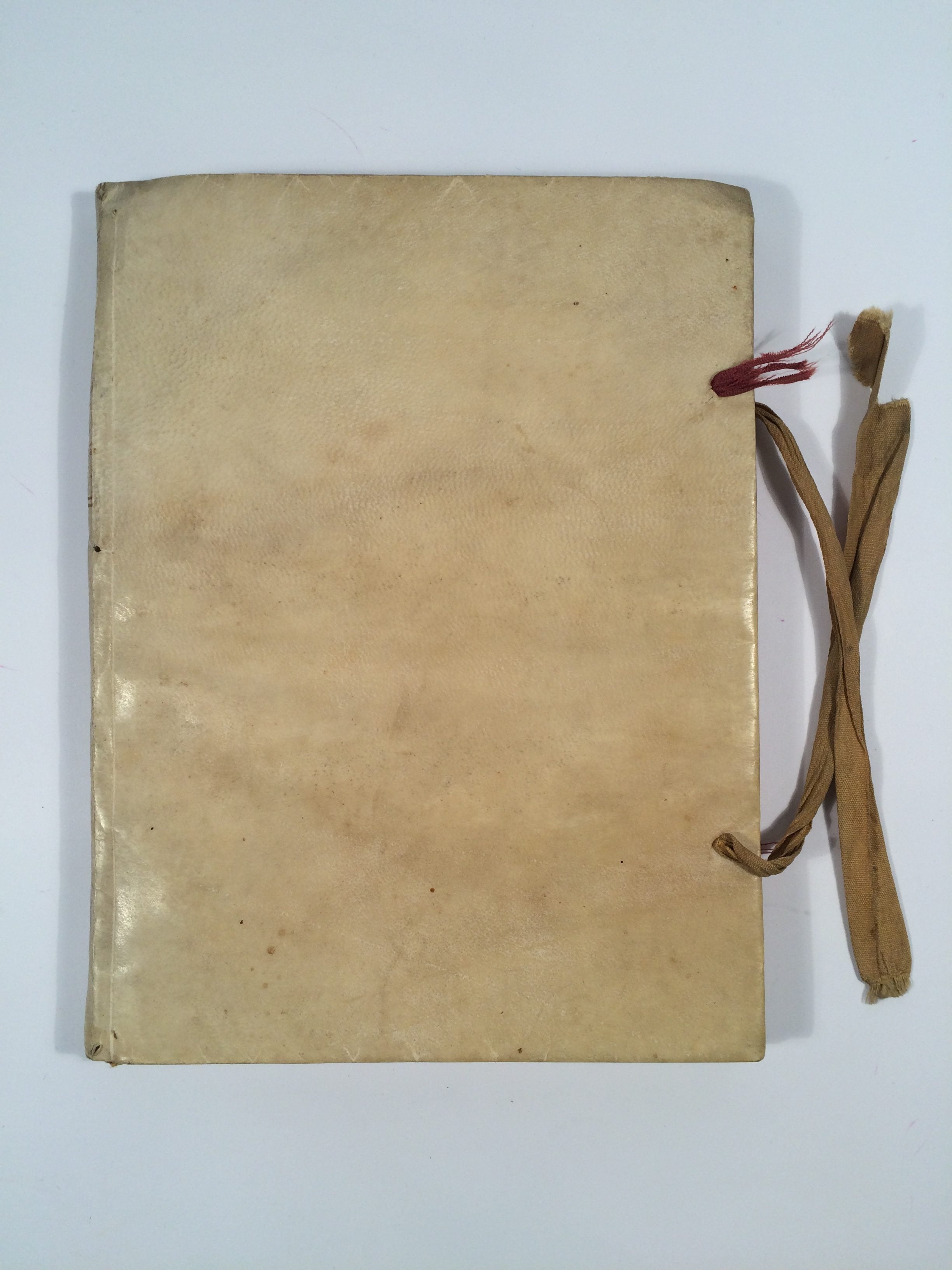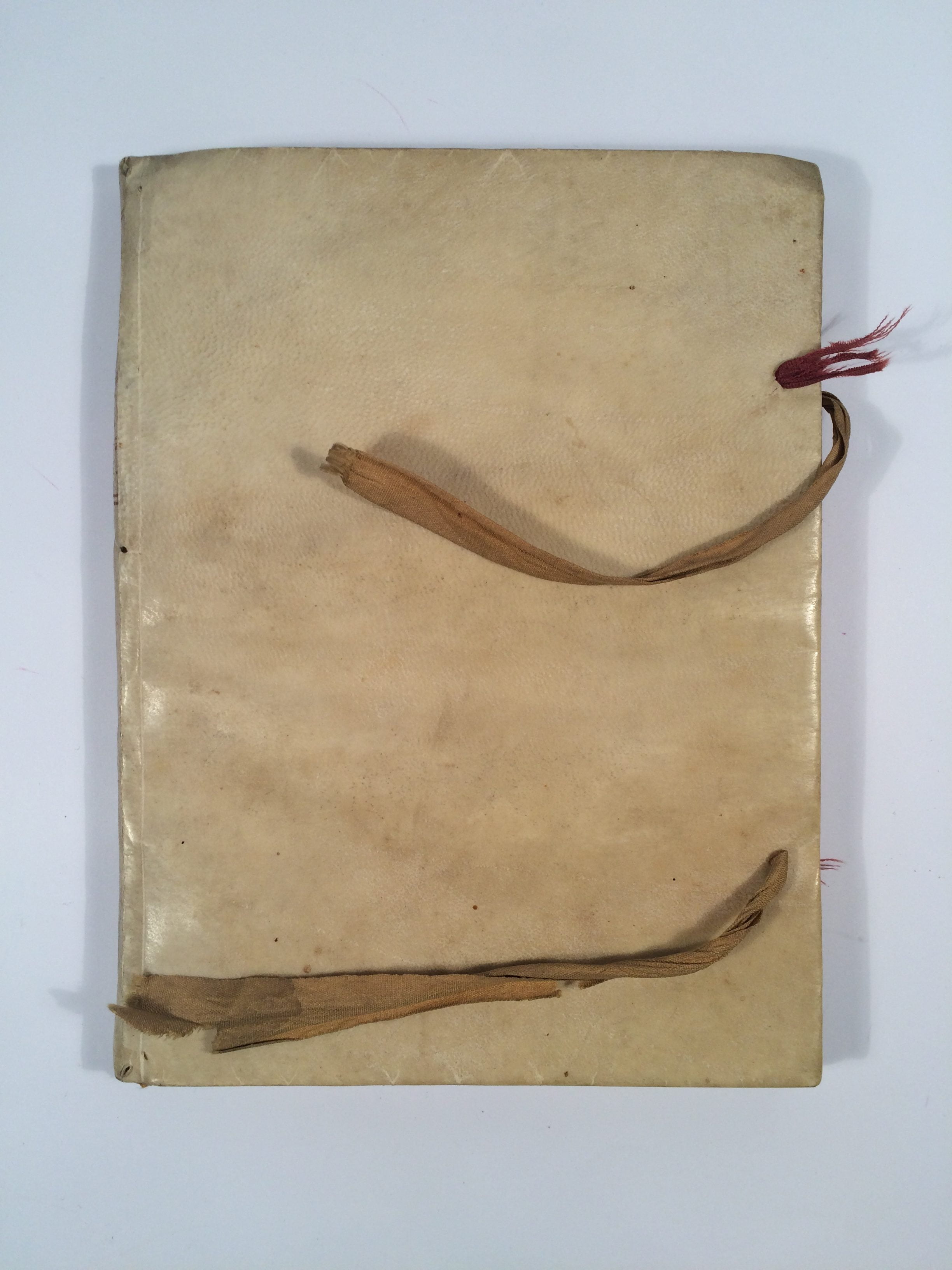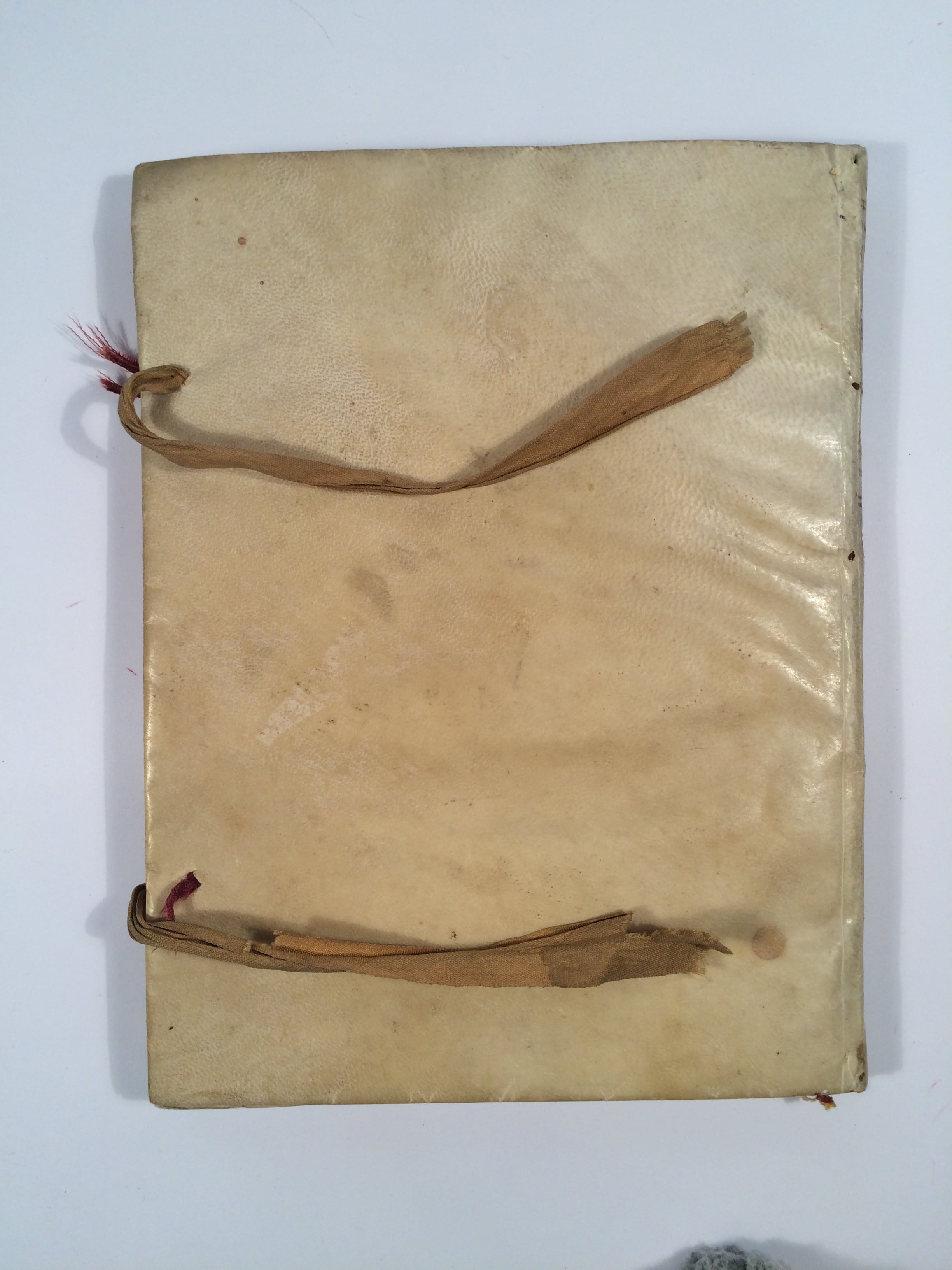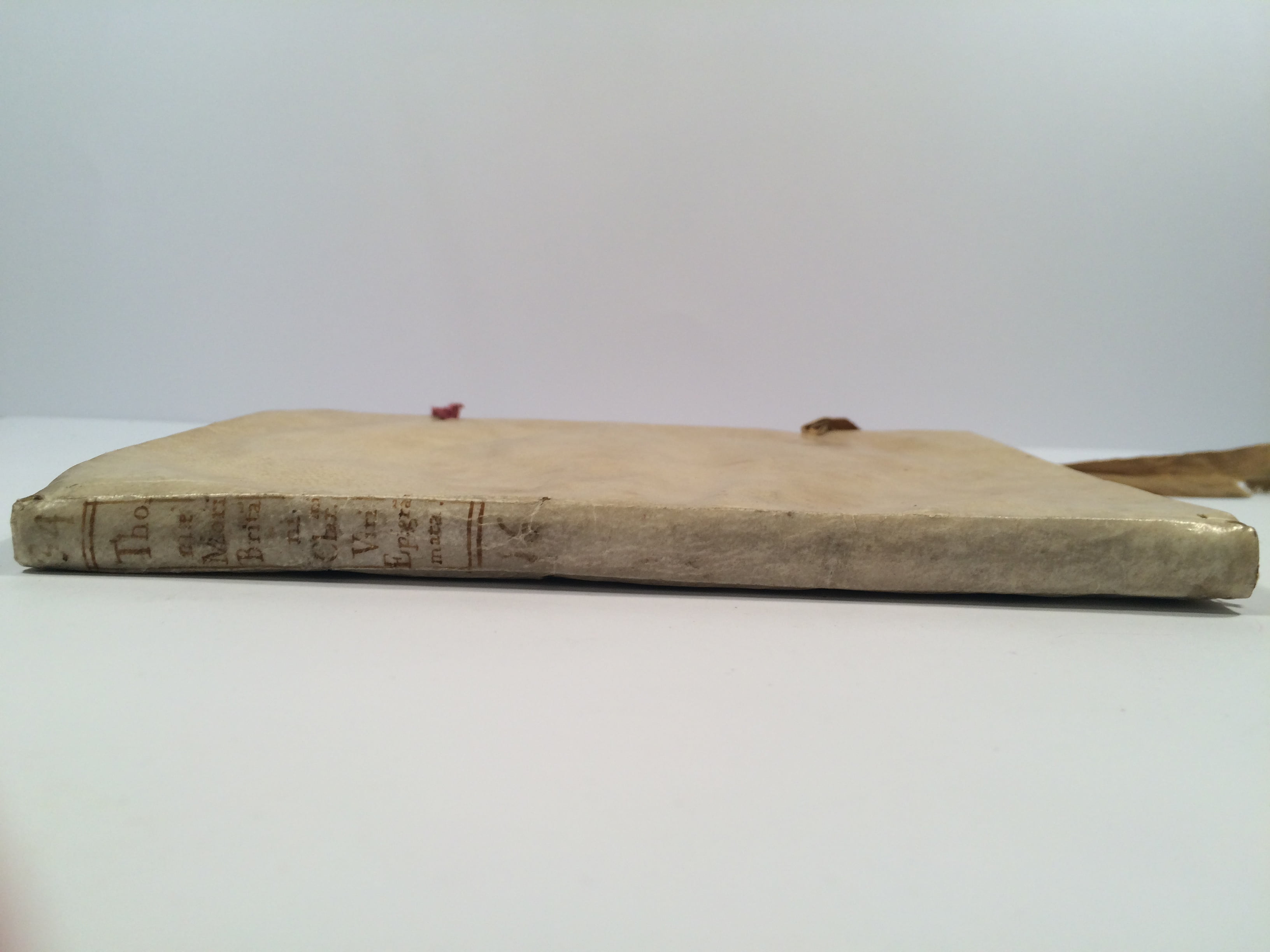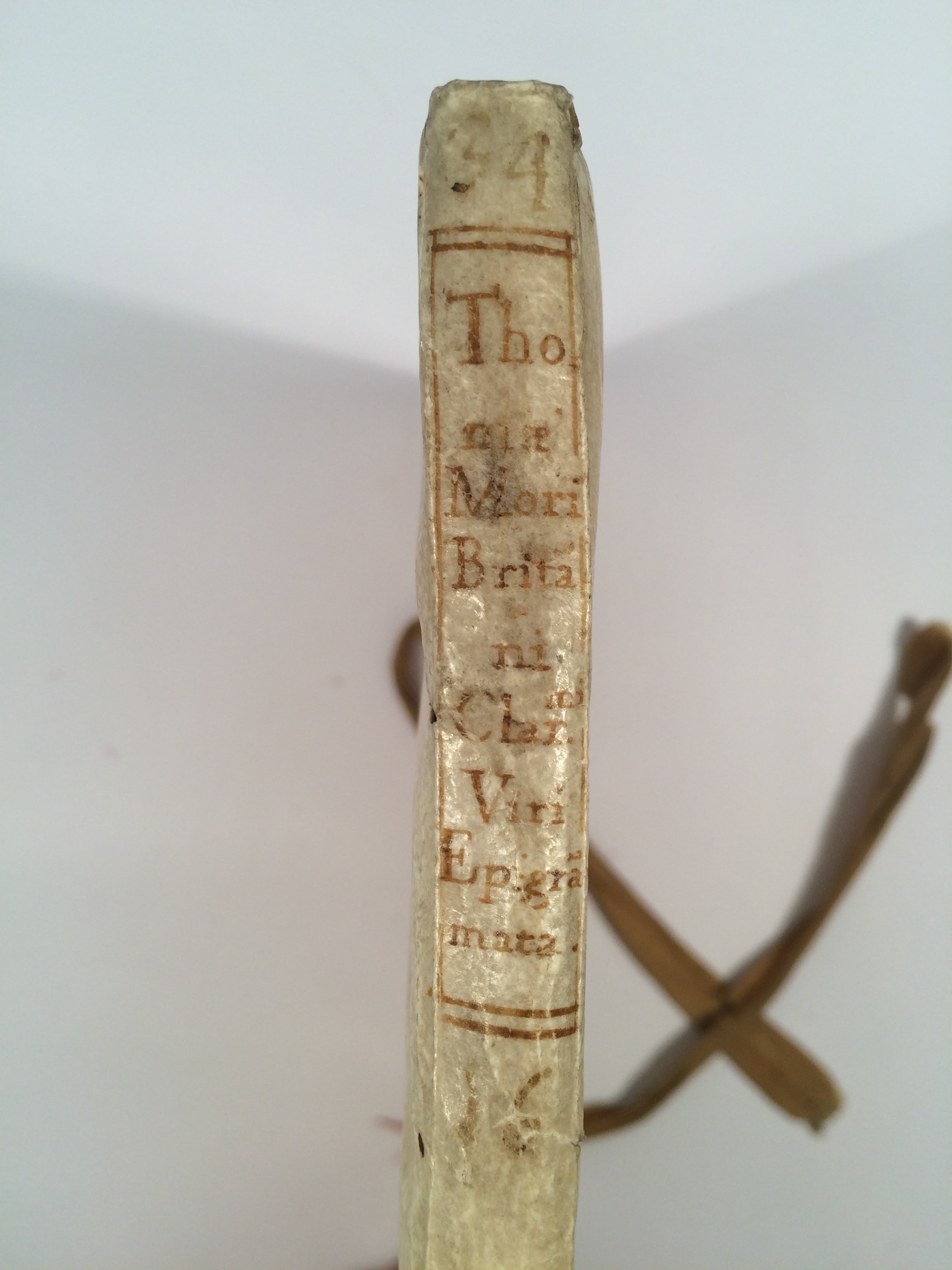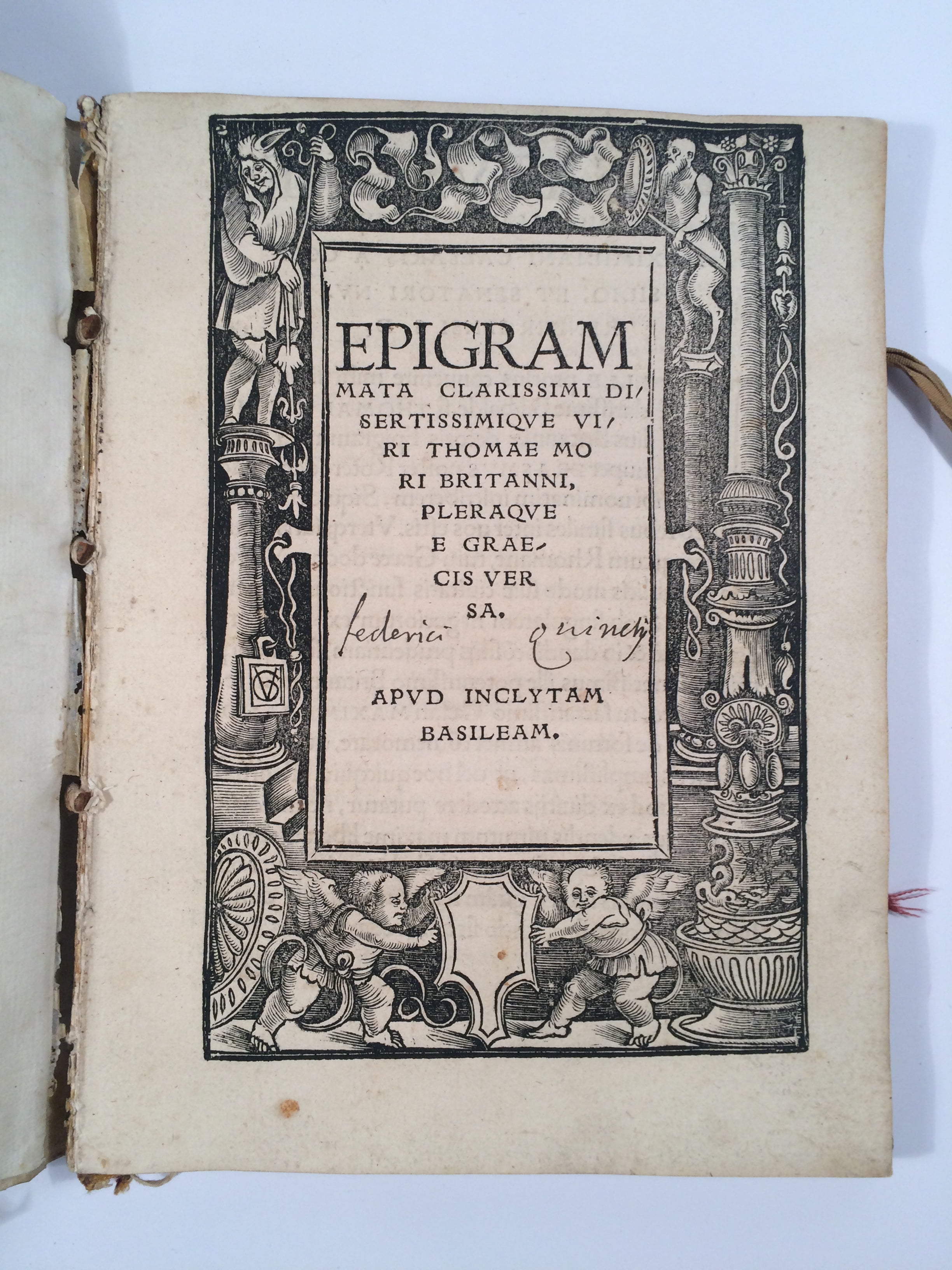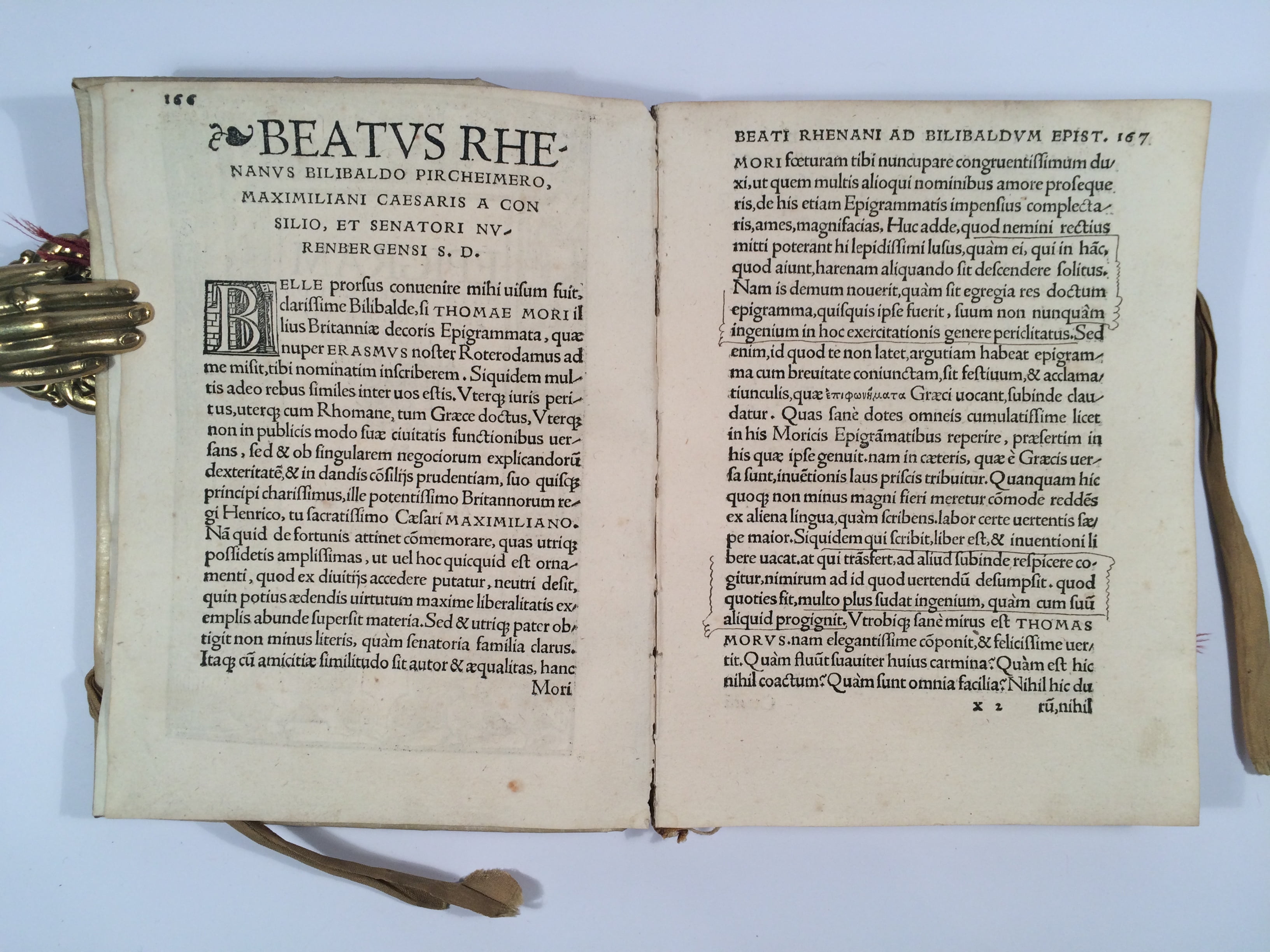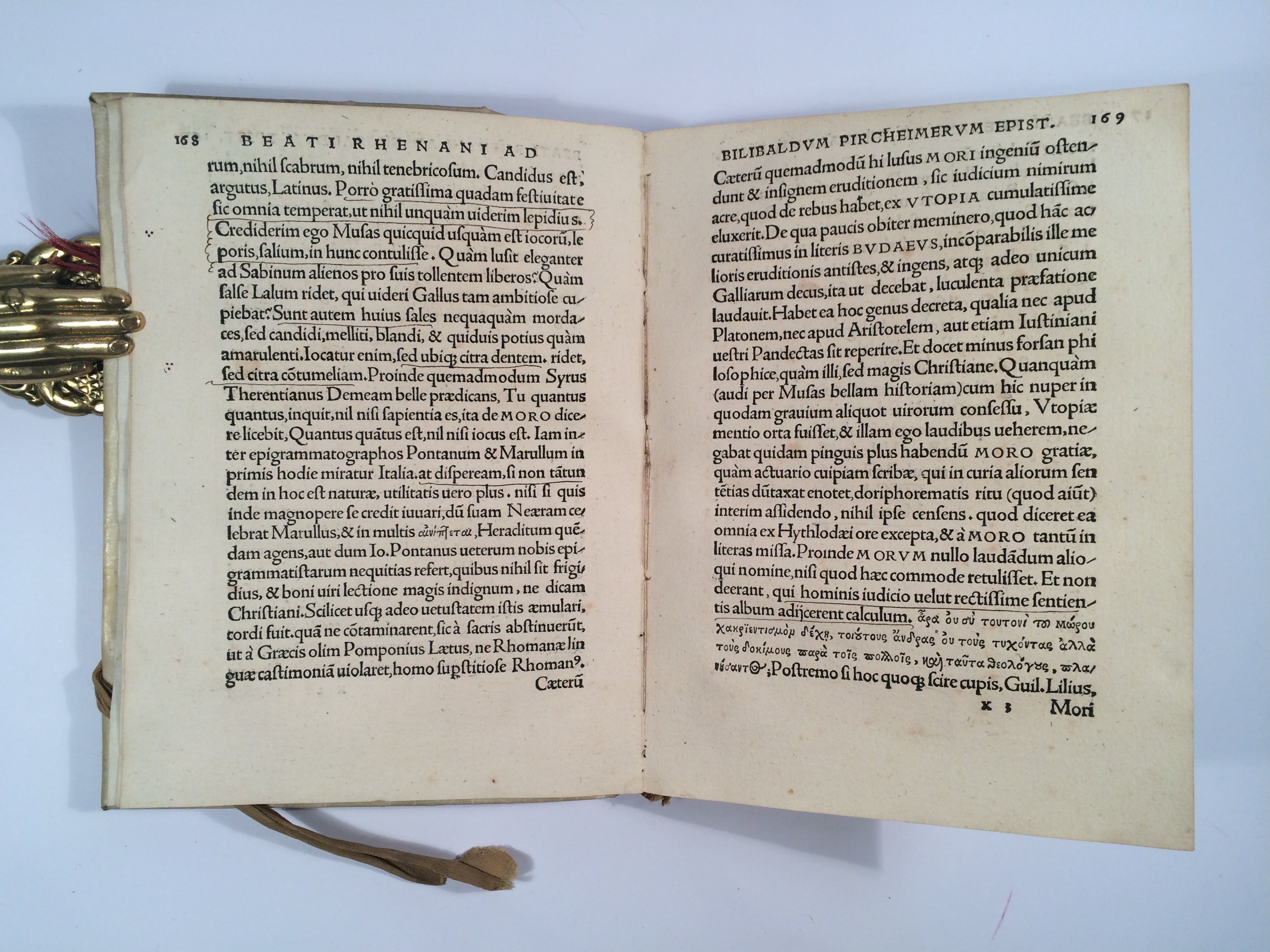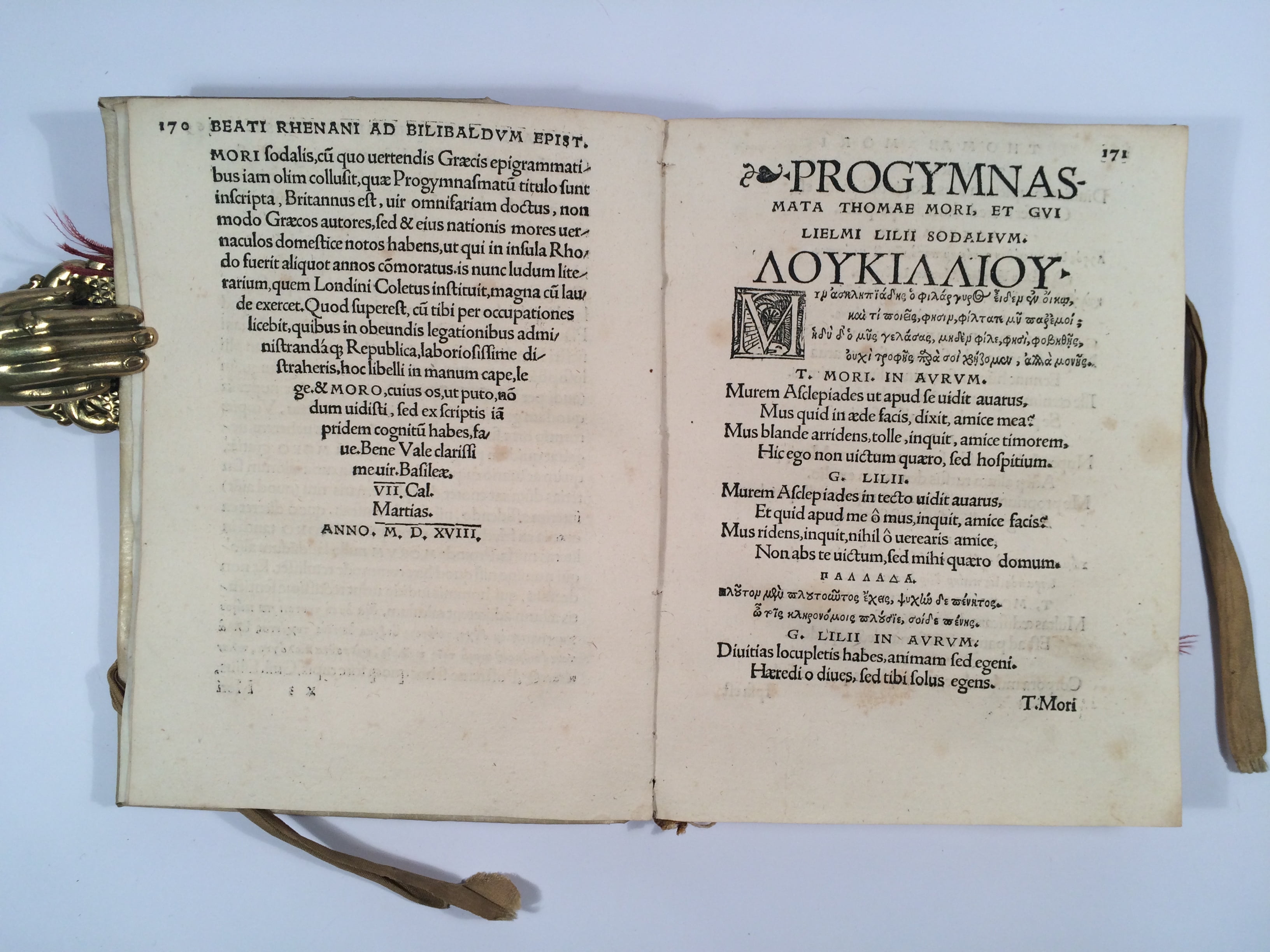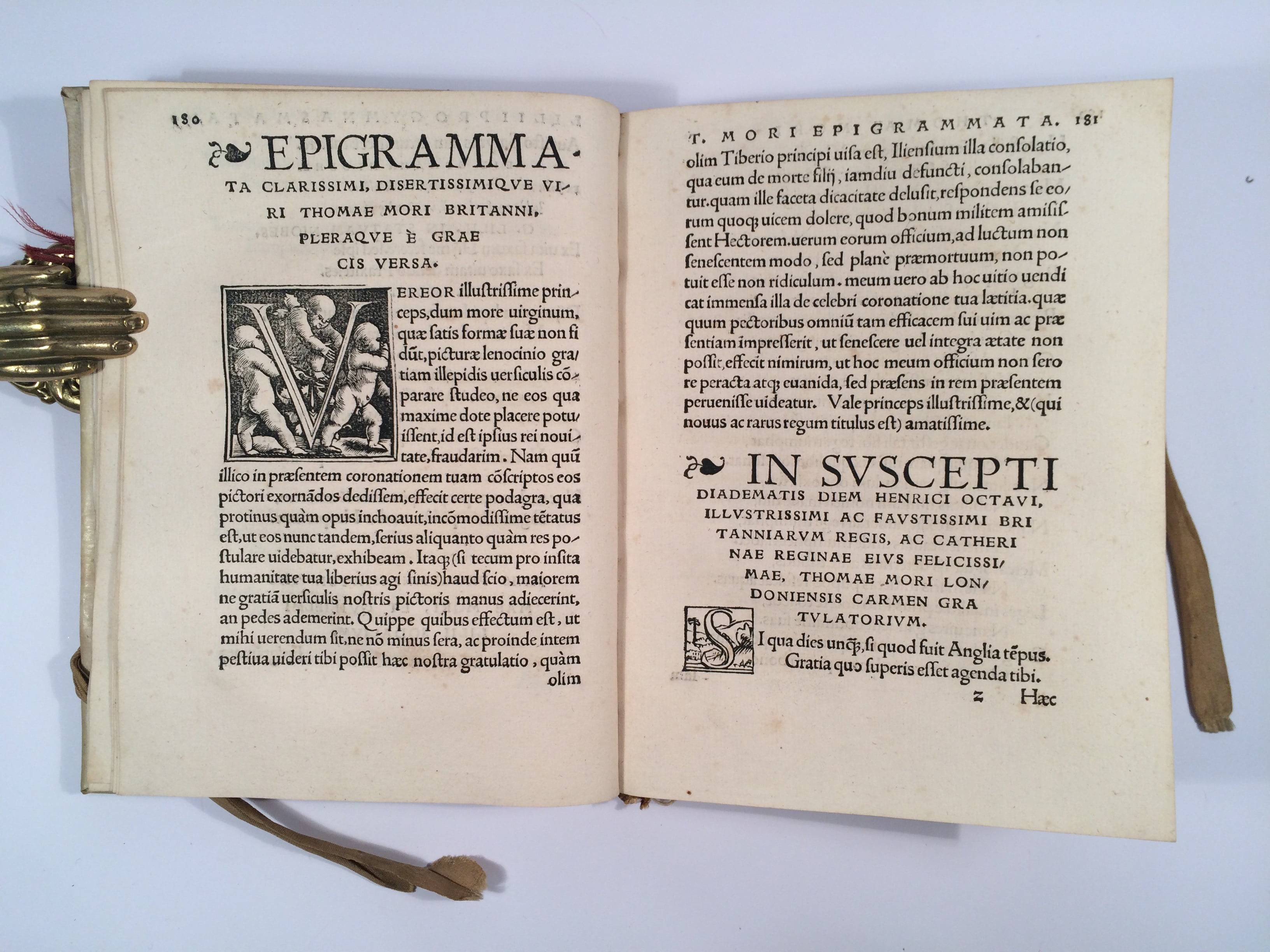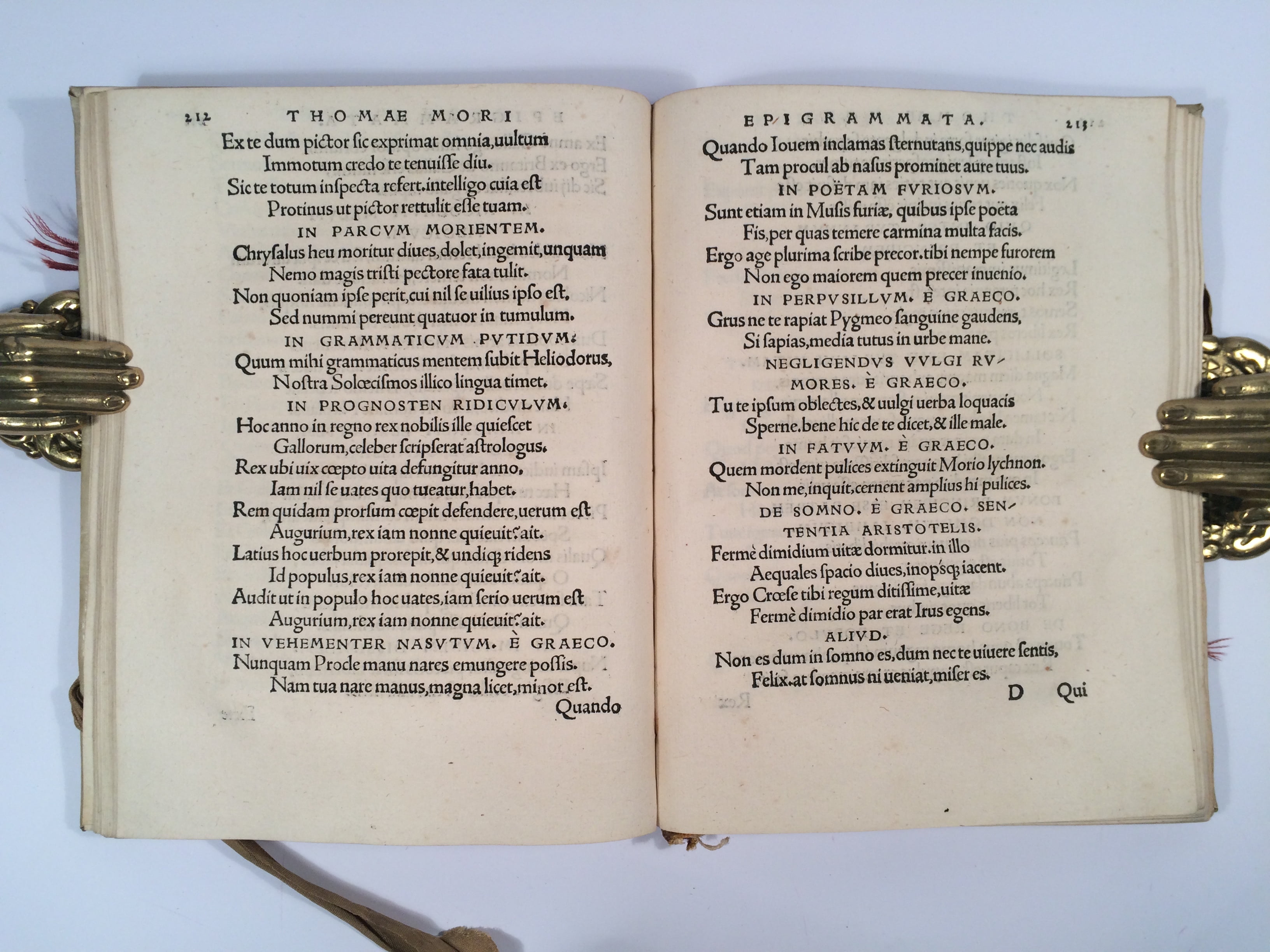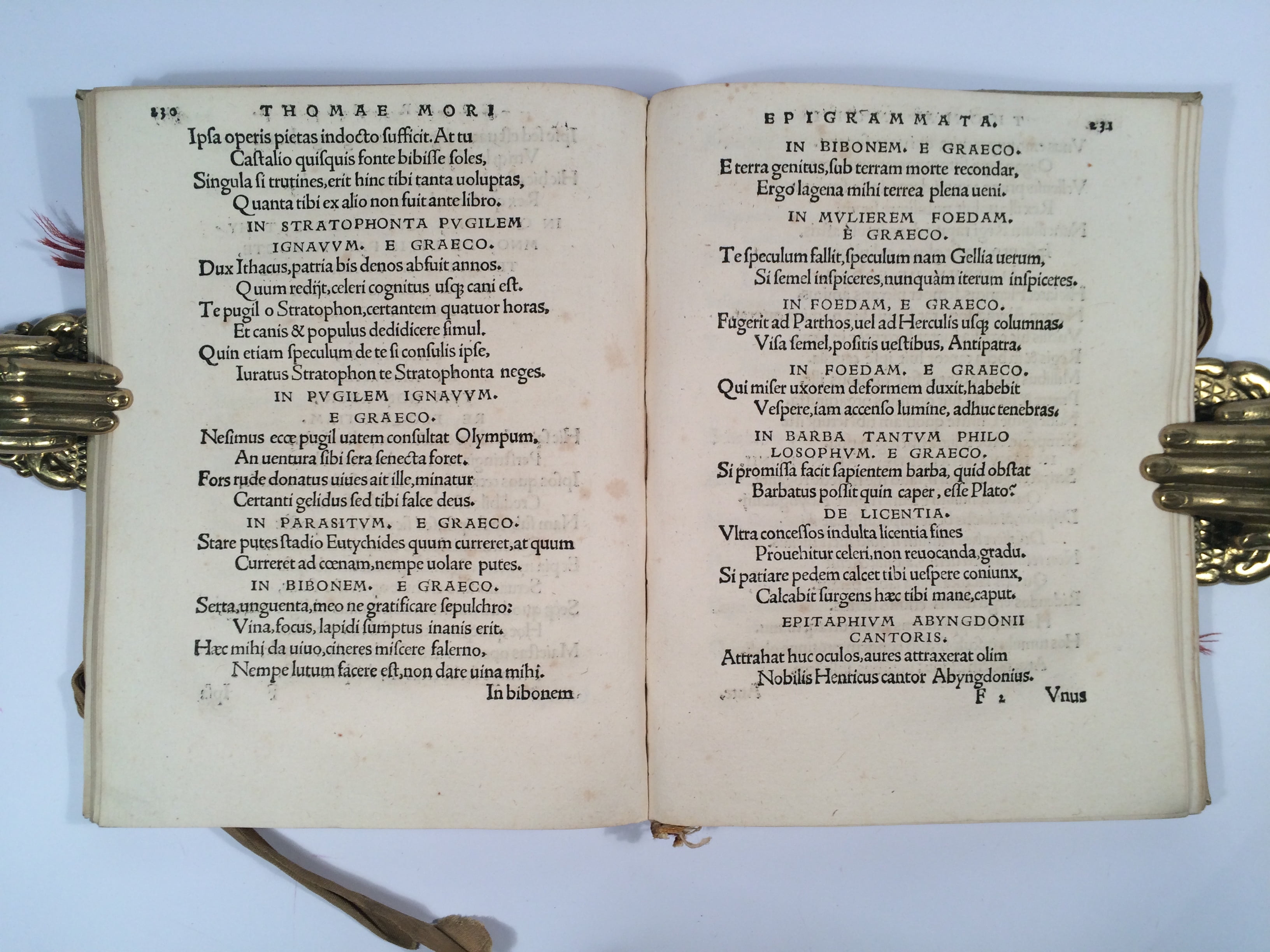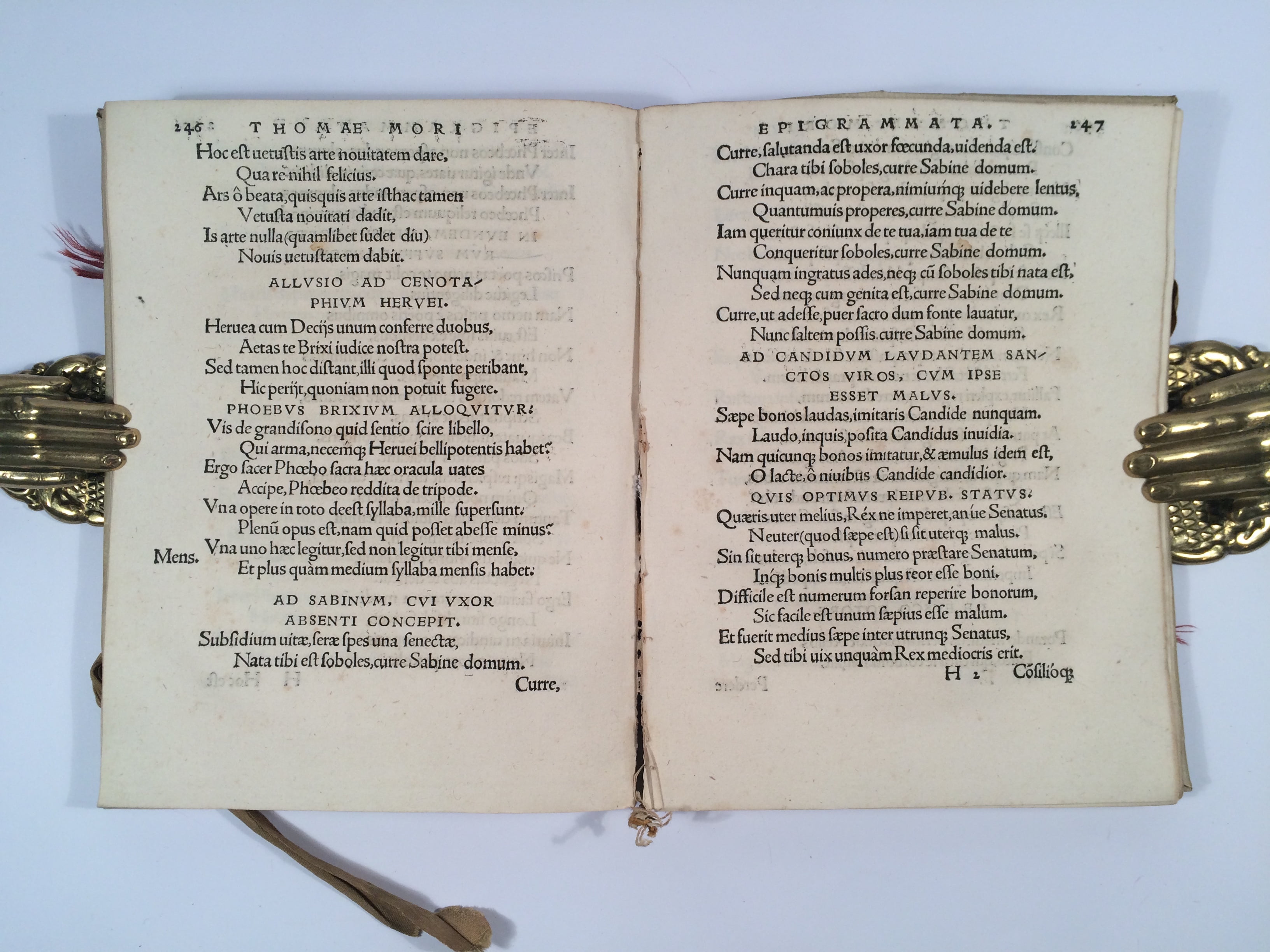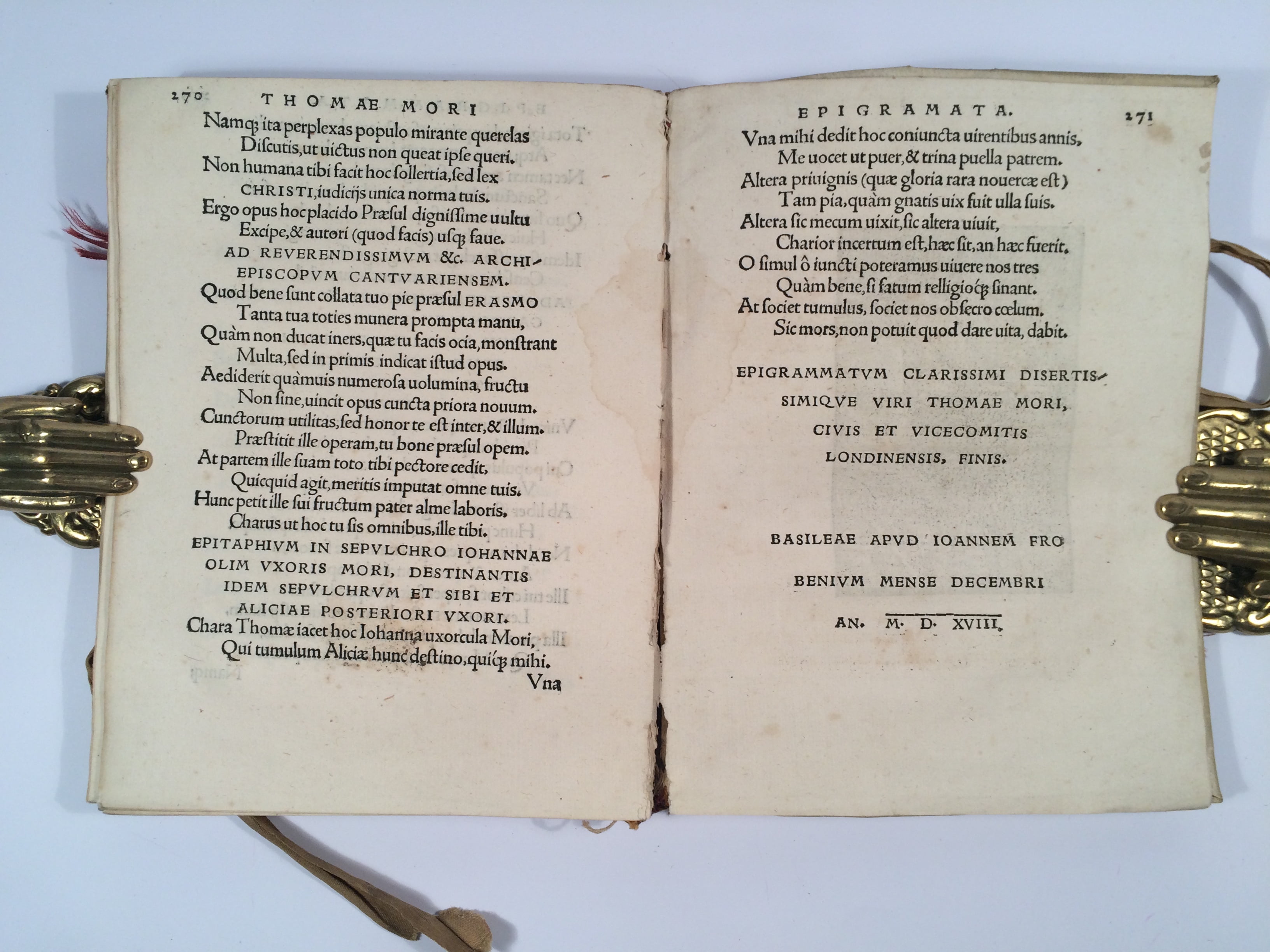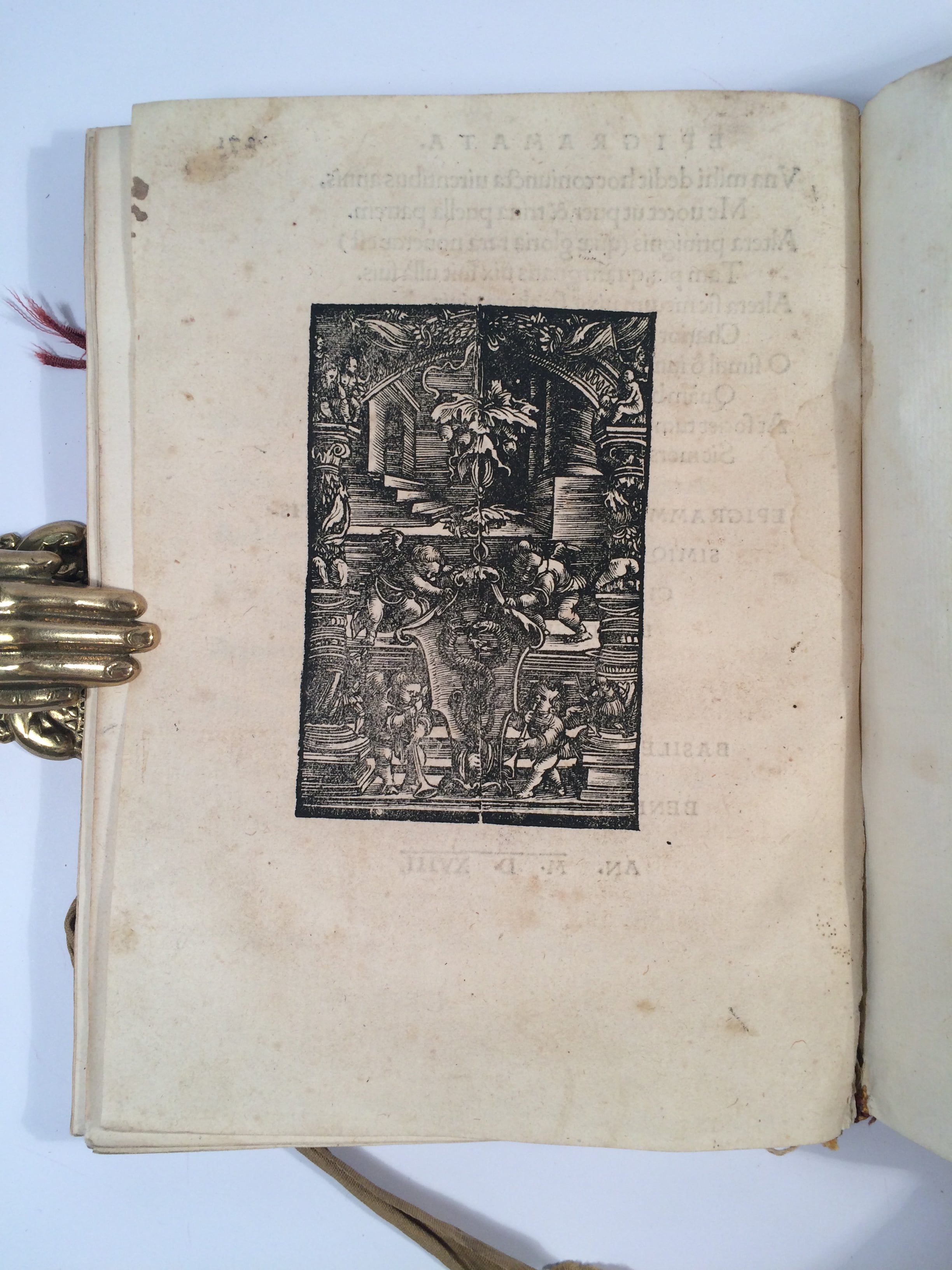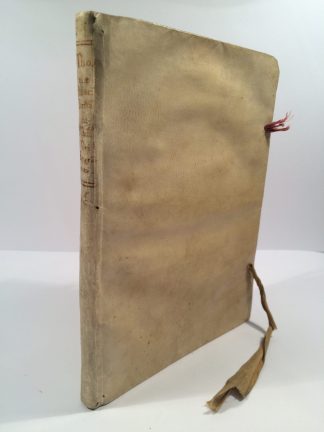MORE, St. Thomas
Epigrammata ... pleraque e graecis versa
Basel, Froben, 1518, December£4,750.00
4to, pp. 166-271, [1]. Roman letter, little Greek; title within architectural border by Urs Graf with fool and satyr on columns, historiated initials, large printer’s device on verso of final leaf; contemporary underlining. A good copy in early limp vellum, remains of alternating red and green silk ties, contemporary title inscribed on spine; endpapers renewed; bookplate of the Library of St. Benedict’s Abbey, Fort-Augustus, Scotland, and earlier shelfmark label on pastedown; on front endpaper, Pirie’s bookplate and early ms shelfmark; early autograph by an unidentified ‘Federici Quinetij’ on title, occasional underlining by this hand.
Second edition of the verses written by the champion of English Catholicism. Thomas More (1478-1535) was the most skilled and appreciated scholar of Henry VIII’s reign prior to the latter’s break with Rome. His refusal to join the king’s reformation cost him his life. His visionary depiction of the perfect government on the island of Utopia inspired generations of thinkers and politicians. Despite More’s hesitations, the Epigrammata first appeared into print as part of the collection issued by Froben in March 1518 under Erasmus’ and Beatus Rhenanus’ supervision, together with Utopia and Erasmus’s poems. A few months later, between November and December, Froben published the same three-part collection, apparently after some revision by the author. Fairfax Murray points out that ‘more often than not the three parts (either edition) are found separately’. Indeed, the BL has an independent copy of the Epigrammata of March (11409.g.47.). The book opens with a letter from Rhenanus to Willibald Pirckheimer, followed by the Progymnasmata, an erudite dialogue in Greek and Latin verses between More and the grammarian William Lily (c.1468-1522).
BM STC Ger., 860; Adams, M 1758; Fairfax Murray, German, 304; Gibson, 4. Not in Brunet or Graesse.In stock


